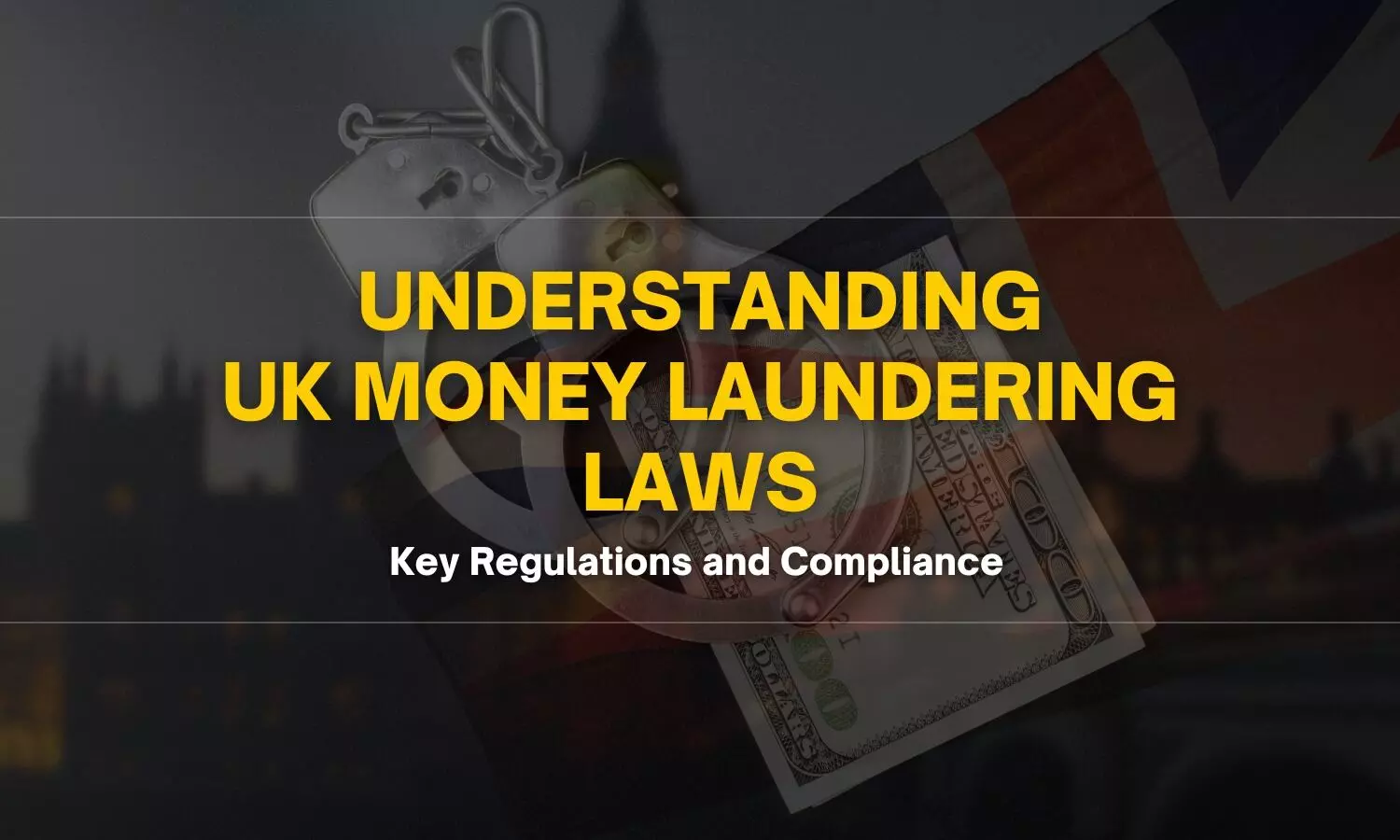Understanding UK Money Laundering Laws: Key Regulations and Compliance
The article explains the importance of understanding and adhering to UK money laundering regulations, emphasizing the necessity of compliance measures, and much more. Scroll down to read more!

Money laundering remains a significant concern for regulatory authorities across the United Kingdom. As financial crimes become increasingly sophisticated, it is crucial to understand the key regulations and compliance measures in place to combat this issue.
For individuals or businesses facing allegations, securing a robust defence against money laundering is critical. In this blog post, we will explore the essentials of UK money laundering laws, providing detailed insights into the legislative framework and compliance requirements. This post aims to equip you with the necessary knowledge to navigate these regulations effectively.
Key Regulations Governing Money Laundering in the UK
The primary legislation regulating money laundering in the UK is the Money Laundering, Terrorist Financing and Transfer of Funds (Information on the Payer) Regulations 2017, often referred to as the Money Laundering Regulations 2017. These regulations are designed to enforce strict anti-money laundering (AML) measures across various sectors, ensuring that businesses comply with their legal obligations.
The Importance of Compliance
Compliance with money laundering regulations is not only a legal requirement but also a critical component of risk management for businesses. Adhering to these regulations helps mitigate the risk of financial crimes and protects the integrity of the financial system.
Some of the key rules of compliance for businesses include:
- Enhanced Due Diligence (EDD): Businesses are required to conduct thorough checks on clients and transactions to identify and mitigate any potential risks.
- Reporting Suspicious Activity: Entities must report any suspicious activities or transactions to the National Crime Agency (NCA).
- Record Keeping: Organisations must maintain detailed records of transactions and client information for a specified period.
Roles and Responsibilities
Under the Money Laundering Regulations 2017, various roles and responsibilities are assigned to ensure compliance:
- Money Laundering Reporting Officer (MLRO): Every organisation subject to AML regulations must appoint an MLRO responsible for overseeing compliance and reporting suspicious activities.
- Senior Management: Senior management bears ultimate responsibility for ensuring the organisation's compliance with AML regulations.
- Employees: Staff must be adequately trained in identifying and reporting suspicious activities.
Practical Steps for Ensuring Money Laundering Regulatory Compliance
Adherence to money laundering regulations requires a proactive approach. Businesses must implement robust internal controls and procedures to detect and prevent financial crimes. Here are some practical steps to ensure compliance:
Conducting Risk Assessments
Regular risk assessments are fundamental in identifying potential vulnerabilities within an organisation. By evaluating the risk levels associated with different clients, transactions, and geographic locations, businesses can tailor their AML measures accordingly.
Some of the risks to manage include:
- Client Risk: Assessing the risk profile of clients based on factors such as industry, location, and transaction behaviour.
- Transaction Risk: Monitoring transaction patterns to detect any unusual or suspicious activities.
- Geographic Risk: Identifying high-risk jurisdictions and implementing additional controls for transactions involving these regions.
Implementing Customer Due Diligence
Customer Due Diligence (CDD) is a critical component of AML compliance. Businesses are required to verify the identity of their clients and assess the purpose and nature of the business relationship.
- Identity Verification: Obtaining and verifying identification documents from clients.
- Beneficial Ownership: Identifying and verifying the beneficial owners of corporate clients.
- Ongoing Monitoring: Continuously monitoring client activities and updating CDD information as necessary.
Training and Awareness
Ensuring that employees are well-informed about AML regulations and their responsibilities is crucial. Regular training sessions should be conducted to keep staff updated on the latest regulatory changes and best practices.
- Mandatory Training: All employees must undergo AML training as part of their induction process.
- Refresher Courses: Periodic refresher courses to ensure ongoing awareness and compliance.
- Real-life Scenarios: Using case studies and real-life examples to illustrate potential risks and appropriate responses.
Utilising Technology
Technology plays a vital role in enhancing AML compliance. Automated systems can streamline processes, reduce human error, and improve the efficiency of monitoring and reporting activities. Some key uses of tech include:
- Transaction Monitoring: Implementing software to monitor transactions in real-time and flag suspicious activities.
- Data Analytics: Using data analytics tools to identify patterns and anomalies that may indicate money laundering.
- Compliance Management Systems: Deploying comprehensive compliance management platforms to centralise and streamline AML efforts.
The Role of Regulatory Bodies in AML
Regulatory bodies play a crucial role in enforcing money laundering laws and ensuring compliance across various sectors. The Financial Conduct Authority (FCA) is one such body responsible for overseeing financial institutions and ensuring they adhere to AML regulations. For detailed guidance, businesses can refer to the FCA's official guidelines on money laundering regulations.
Complying with Anti-Money Laundering is the Law
Understanding and adhering to the UK's money laundering laws is essential for individuals and businesses alike. Ensuring compliance not only protects against legal repercussions but also safeguards the financial system's integrity.
**Please be advised this article is for informational purposes only and should not be used as a substitute for advice from a trained legal professional. Please seek the advice of a legal professional if you’re facing issues regarding money laundering.
Important Links
Law Library: Notes and Study Material for LLB, LLM, Judiciary, and Entrance Exams

